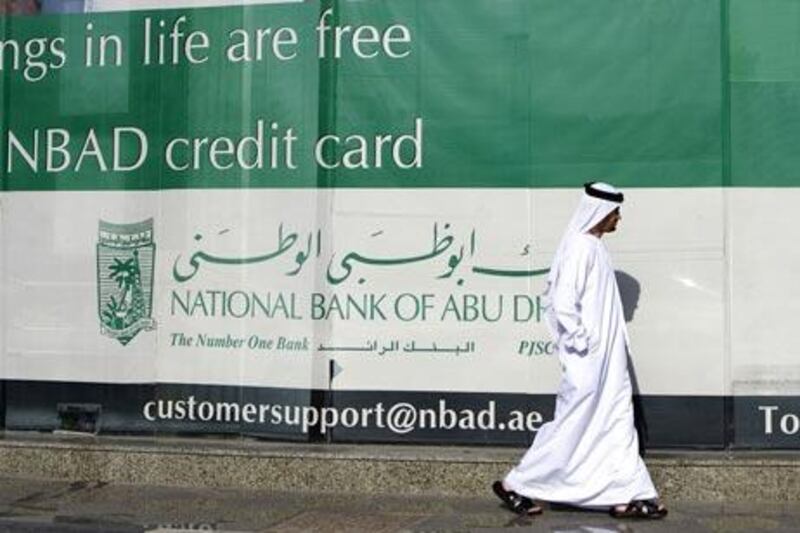National Bank of Abu Dhabi (NBAD) plans to list a unique exchange-traded fund (ETF) on the capital's bourse, which will track the region's largest and most actively traded stocks. The lender is in talks with regional regulators, exchanges, distributors and brokers, and expects to launch the product "within the next few months", a senior executive said.
While a few ETFs are listed in the Gulf, the Pan-GCC ETF would be the first to span the region, giving investors exposure to securities on numerous exchanges through a single fund. "Our future plans have not been a secret," said Alan Durrant, the chief investment officer for asset management at NBAD. "We are looking to launch future products … the Pan-GCC ETF is next and we are working on it." NBAD's move follows growing talk about integration among regional stock exchanges as a means of lifting low trading and boosting stock prices.
Sultan al Mansouri, the UAE Minister of Economy, last month proposed closer co-operation between exchanges after a meeting of market regulators in Riyadh, Saudi Arabia. And Essa Kazim, the chief executive of the Dubai Financial Market, said last month that leaders were discussing a possible merger of the Dubai exchange and the Abu Dhabi Securities Exchange (ADX). A Pan-GCC ETF would be a useful tool not only for the regional institutional and individual investors but also for international asset managers wanting easy exposure to the region's largest companies, analysts say.
ETFs are funds that hold a range of equities or other securities but trade like an individual stock. "This is a product for investors who want exposure to the whole region," said Fadi al Said, a senior fund manager and the head of equities at ING Investment Management in Dubai. "Such an ETF will provide investors a base to track gem-stocks if they want to invest." NBAD listed the region's first ETF, the NBAD OneShare Dow Jones UAE 25, or 1UAE, on the ADX in March. It gives investors exposure to 25 of the UAE's largest and most frequently traded stocks.
The bank seeded the fund, which has more than half its assets invested in financial sector stocks, with US$10 million (Dh36.7m). The fund is about 53 per cent invested in Abu Dhabi, about 42 per cent in the Dubai Financial Market and about 5 per cent in NASDAQ Dubai. In Saudi Arabia, the investment bank and brokerage Falcom Financial Services listed the country's first ETF in March. Falcom Saudi Equity, which tracks the F30 Falcom Saudi Equity Index, is accessible to local and foreign investors.
Mr Durrant said he was happy so far with investor response to the ETF on the ADX, adding that NBAD would look to list more ETFs on other regional bourses as demand grows. "We're even looking at some point to launch a global equity ETF, perhaps even listing on the London Stock Exchange, but we don't see the appetite for that just yet," he said. The bank, he said, spent two years developing OneShare, an ETF listing platform that other banks can use to list their own ETFs.
ETFs are one of the world's fastest-growing investment products. According to BlackRock, one of the largest asset management companies in the world, ETF assets exceeded $1 trillion at the end of last year, up by about 46 per cent from $711 billion a year earlier. Investor response to ETFs in GCC has been muted, but officials and banks hope that more listings will help boost their visibility and attract trading.
halsayegh@thenational.ae skhan@thenational.ae





